Working Group Chairs
The Education & Workforce Working Group currently has two sub-working groups: Program Assessment and Project Based Teaching. The South Hub leadership team has heard feedback from the Data Science Education & Workforce Working Group members for opportunities to engage in small topic-based sub-working groups. |
2023 Past Speakers
Dr. Renata Rawlings-Goss: Georgia Institute of Technology
Dr. Renata Rawlings-Goss is the Executive Director of The South Big Data Innovation Hub, an NSF-funded 16-state center connecting industry, academia, and government around data science innovation. She is the Director of Strategic Partnerships for the Georgia Institute of Technology- Institute for Data Engineering and Science (IDEaS).
Formerly, Dr. Rawlings-Goss worked with the White House Office of Science and Technology Policy while at the National Science Foundation CISE-OAD founding the National Data Science Organizers and co-leading the writing team for the Federal Big Data Strategic Plan.
Ashok Goel: Georgia Institute of Technology
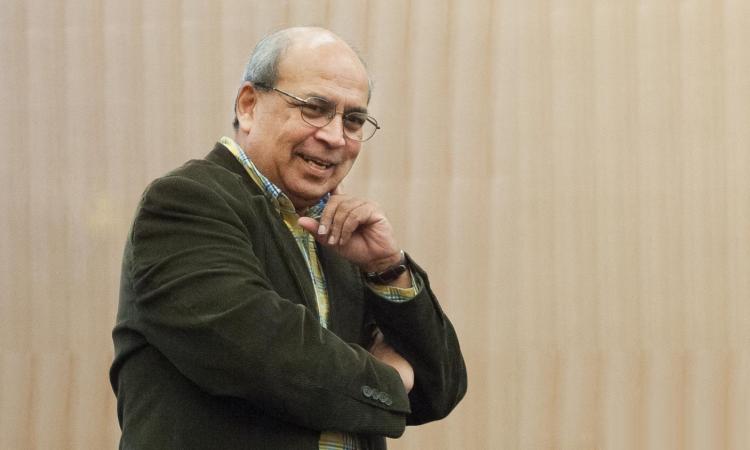 Ashok K. Goel is a professor of Computer Science and Human-Centered Computing in the School of Interactive Computing at Georgia Institute of Technology and chief scientist with Georgia Tech’s Center for 21st Century Universities. For more than 35 years, he has conducted research into cognitive systems at the intersection of artificial intelligence and cognitive science with a focus on computational design and creativity. For the last decade, his research has increasingly focused on AI in education and education in AI. He is a Fellow of AAAI and the Cognitive Science Society, an editor emeritus of AAAI’s AI Magazine, and a recipient of AAAI’s Outstanding AI Educator Award. He is the Executive Director of the National AI Institute for Adult Learning and Online Education sponsored by the US National Science Foundation and headquartered at Georgia Tech.
Ashok K. Goel is a professor of Computer Science and Human-Centered Computing in the School of Interactive Computing at Georgia Institute of Technology and chief scientist with Georgia Tech’s Center for 21st Century Universities. For more than 35 years, he has conducted research into cognitive systems at the intersection of artificial intelligence and cognitive science with a focus on computational design and creativity. For the last decade, his research has increasingly focused on AI in education and education in AI. He is a Fellow of AAAI and the Cognitive Science Society, an editor emeritus of AAAI’s AI Magazine, and a recipient of AAAI’s Outstanding AI Educator Award. He is the Executive Director of the National AI Institute for Adult Learning and Online Education sponsored by the US National Science Foundation and headquartered at Georgia Tech.
Judy Cameron, Ph.D., | Director of Pittsburgh DataWorks
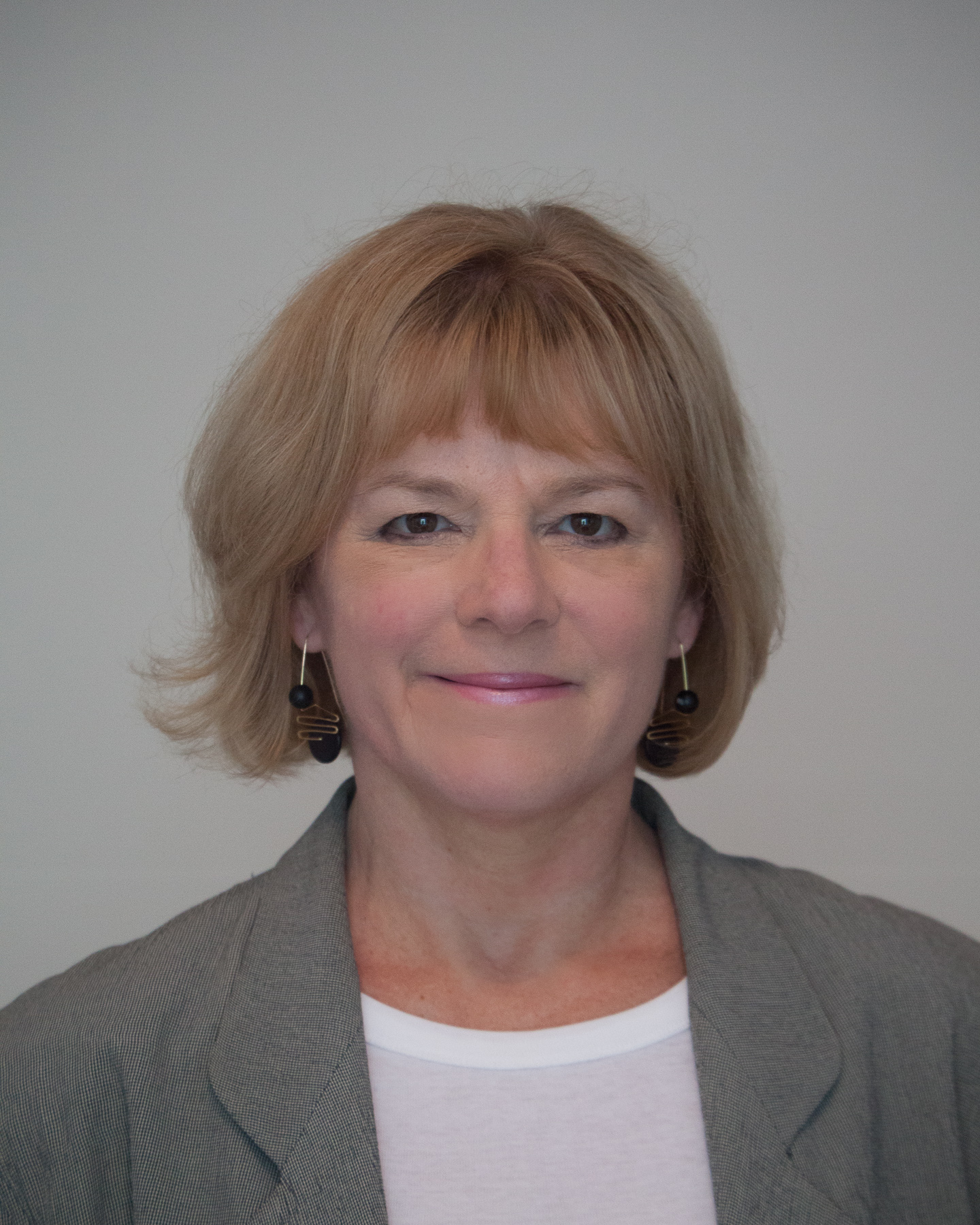
Judy Cameron, Ph.D., is the Director of Pittsburgh DataWorks, an educational nonprofit that developed and has run the DataJam since 2013. She is also a professor at the University of Pittsburgh. Dr. Cameron has a long history of translating science to the public. She served as Director of Pitt Science Outreach from 2009-2019, which provides science education to more than 20,000 school age children and members of the public each year. She made a series of short films for PBS about the myths about mental illness, which first aired in 1995 and are still being aired today. She also teaches a college course entitled “Using Big Data for Community Good” that trains college students how to be effective mentors for the DataJam.
Debzani Deb - RJ Reynolds Endowed Professor of Computer Science & Founding Director, Center for Applied Data Science (CADS), Winston-Salem State University
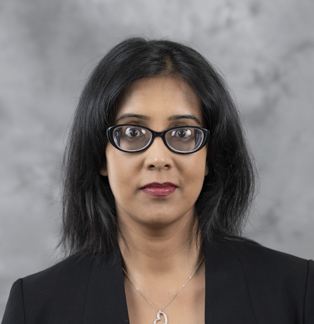
Debzani Deb is the RJ Reynolds Endowed Professor of Computer Science at the Winston-Salem State University. She is also the founding director of Center for Applied Data Science (CADS) at WSSU. She authored and coauthored over 40 referred journal and proceeding articles and has been awarded nearly $ 3.5 million of federal funding as PI and Co-PI. She has over 15 years of experience in Higher Education as faculty member in three different countries such as USA, Australia and Bangladesh. Her research interests are in the areas of Applied Data Science, Machine Learning, Parallel and Distributed System, and Computing Education. She is the recipient of 2021 Wilveria B. Atkinson Distinguished Research Award at WSSU.
Mahmoud Harding | Instructional Design Specialist for Data Science for Everyone
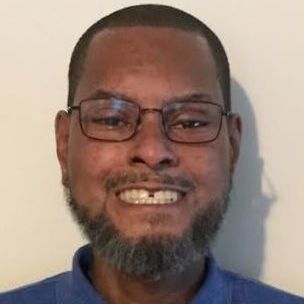
Mahmoud Harding is the Instructional Design Specialist for Data Science for Everyone, a non-profit coalition working to advance data science education for all K-12 students. Previously, he has taught courses in mathematics and data science at the North Carolina School of Science and Mathematics (NCSSM) and at the Data Science Academy (DSA) at NC State University. During his time at NCSSM he co-developed introductory and advanced data science courses in both R and Python.
Rachel Levy | Executive Director, Data Science Academy & Professor of Mathematics, North Carolina State University
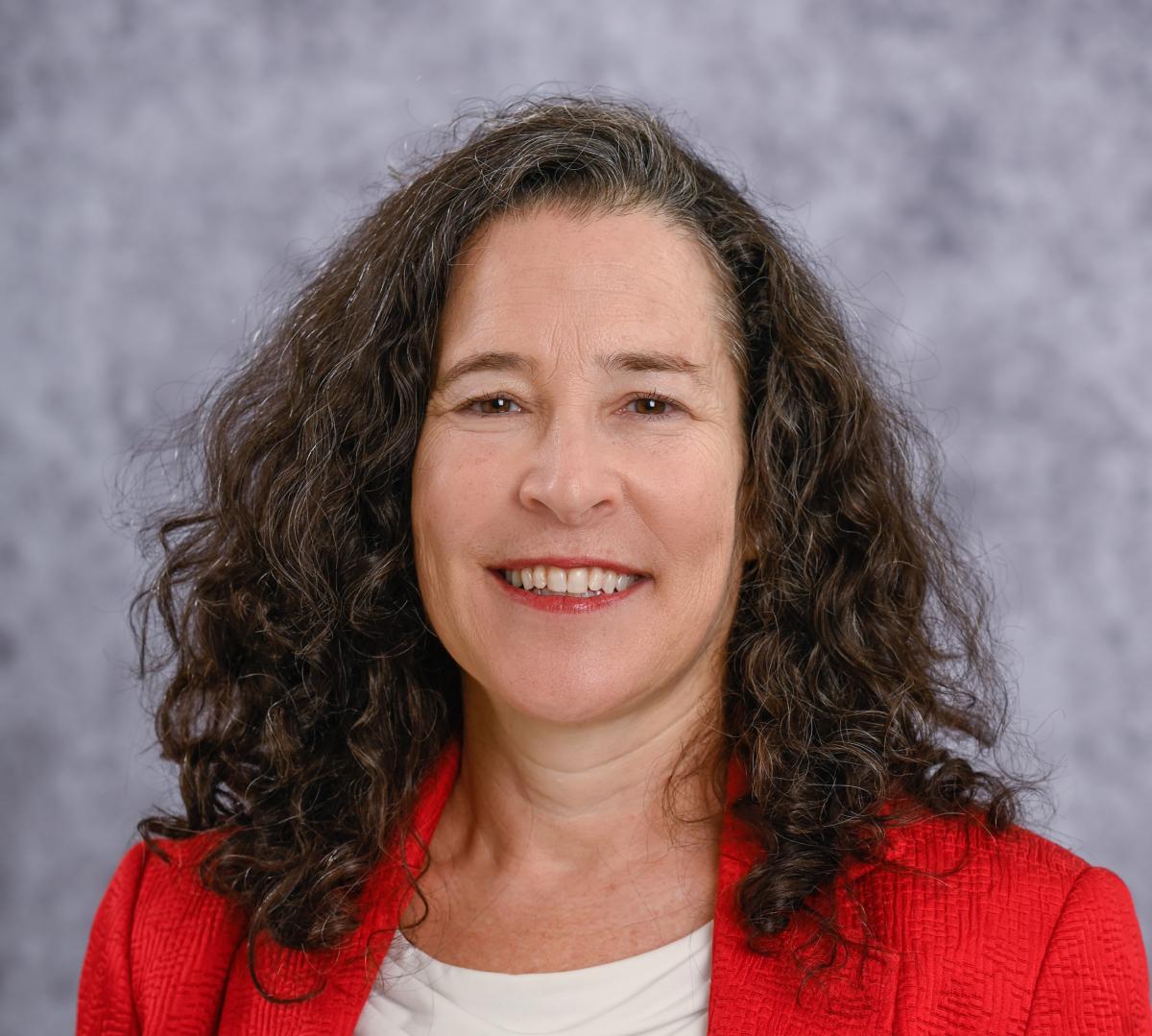
Dr. Rachel Levy (Ray) is the inaugural Executive Director of the Data Science Academy at NC State University and Professor of Mathematics. She incubates data science research partnerships within the university, across NC and beyond, leads the design and implementation of the DSA’s ADAPT course model (All-Campus Data Science Accessible Project Based Teaching and Learning), and communicates about data science with national and international audiences.
Prior to joining NC State, Dr. Levy was an American Mathematical Society Congressional Policy Fellow at the American Association for the Advancement of Science. She previously served as deputy executive director and staff principal investigator at the Mathematical Association of America, as well as associate dean for faculty development at Harvey Mudd College.
2022 Past Speakers
Ed Pearson | S.E.E.D.S - Summer Data Science Academy for Undergraduate Students at Two HBCUs
Dr. Ed Pearson III is an Assistant Professor at Alabama A&M University in the College of Engineering, Technology, and Physical Sciences. Dr. Pearson is also the director of the Cybersecurity Outreach and Research (COR) Lab. Dr. Pearson’s research combines both cyber/information security and human-computer interaction with emphasis on social engineering and phishing attacks. Dr. Pearson believes that data science is essential to defending against cyber threats. In his free time Dr. Pearson enjoys great food and good music.
David Lockett | Summer Data Science Academy: Promoting Data Science with Robotics and NASA Geospatial and Extraterrestrial Big Data for Grades 9-12
David Lockett serves as the Co-PI for the SACS Summer Data Science Academy: Promoting Data Science with Robotics and NASA Geospatial and Extraterrestrial Big Data for Grades 9-12 The project combines robotics and big data, at the Meharry Medical College School of Applied Computational Sciences (SACS) The key objective of the program is to stimulate curiosity in the cross-cutting field of data science through data science-driven, hands-on, STEM activities deploying real-life application scenarios and industrial grade robotic systems.
Eugene Levin | Summer Data Science Academy: Promoting Data Science with Robotics and NASA Geospatial and Extraterrestrial Big Data for Grades 9-12
Dr. Eugene Levin, ASPRS Certified Photogrammetrist, joined Meharry Medical College as a professor in the School of Applied Computational Sciences in October 2021. He is an expert in geospatial science and technology with more than 30 years of academic and industry experience in photogrammetry, GIS, WebGIS, mapping, remote sensing, cartography, 3D visualization, human factors, robotics, Lidar, If-SAR, UAV, and aerial and satellite product development.
Ashok Krishnamurthy | EduHelx: Empowering data science education
Ashok Krishnamurthy is the Interim Director of the Renaissance Computing Institute (RENCI) and a Research Professor of Computer Science at the University of North Carolina, Chapel Hill. He is also the Co-director for Informatics and Data Science (IDSci) at NC TraCS. Krishnamurthy has many years of experience with informatics and data science including data science cyberinfrastructure, medical image analysis, time-series data analysis, machine learning and high performance computing. He has over 15 years’ experience as both a researcher and an administrator in advancing cutting-edge research in interdisciplinary teams. Krishnamurthy collaborates with researchers in informatics, biomedical and health research, and social sciences to develop projects and programs that leverage the power of data science and scalable computing to solve challenging problems that advance the state-of-the-art. He advises undergraduate and graduate students and mentors post-doctoral scholars and junior investigators. He is also involved in managing and enhancing research partnerships with faculty at UNC-Chapel Hill, Duke University, and North Carolina State University, along with building relationships between RENCI and Triangle area businesses. Ashok’s research over the years has been funded by NSF, NIH, DoD, DARPA and DOE. Krishnamurthy holds PhD and master’s degrees in electrical and computer engineering from the University of Florida and a bachelor’s degree in electrical engineering from the Indian Institute of Technology.
Isma Gilani | EduHelx: Empowering data science education
Isma Gilani’s career in Computer Science, spanning multiple industries, has enabled her to build solid skills in key areas of software development ranging from requirements gathering and analysis, user centered design, solution development, and implementation.
She has become a key contributor in the development of the HeLx framework, which was motivated by the need for collaboration among scientists and researchers in light of the challenges faced by exponential growth in generation of scientific data. Her in-depth comprehension of HeLx’s architecture, its foundational technologies such as Docker, Kubernetes, and Python/Django, as well as the ability to interface with users enables her to bridge the gap between humans and technology and come up with an effective plan to design, develop, and deploy the right system.
Somya D. Mohanty | A software and analytics tool to map graduate data science courses
Somya is currently working as an assistant professor in the Department of Computer Science at the University of North Carolina – Greensboro. Prior to this, Somya worked as Assistant Research Professor (and lead the Innovative Data Laboratory) at Social Science Research Center – Mississippi State University. Somya received a B.S. in Computer Science and Engineering from Berhampur University, M.S. in Computer Science from Florida State University, and a Ph.D. degree in Computer Science and Engineering from Mississippi State University. Somya's research interests include big-data, machine learning, data science, cyber-security, and trustworthy computing, and specializing in large scale databases, data-mining, algorithm design, web application, network security, trustworthy platform development, and computer security. Somya's current teaching interests include Security and Data Science related courses.
Pramod Misra | Use of Graph networks in improving analytics & Model performance
Pramod Misra is a passionate practitioner of using data for decision making, analytics and customer data enrichment. He is currently co-founder with 5GVector (Atlanta) where he is working on building ML models as a service for Banks, Insurance and Telecom companies. He is also working with Fintechs and insurance companies in developing alternative credit scoring models and the use of graph networks in analytics. He has anchored the development of digital engagement platforms and location analytics (https://www.vodafone.in/business/large-corporates/enterprise-mobility/vodafone-analytics and www.pinsight.ai. He has more than 20 years of full-time work experience and worked with companies like Vodafone, Novartis, Procter & Gamble and Nuclear Power Corporation of India Limited. He is actively engaged with major Banks, Fintech start-ups & customer intelligence companies on developing new capabilities using analytics & alternative data
Lisa Federer | Developing the Workforce for Data Science at the National Library of Medicine
Lisa Federer is the National Library of Medicine (NLM) Data Science and Open Science Librarian, focusing on workforce development in the biomedical research and library communities for data science and open science, as well as advancing data best practices to enhance research reproducibility and promote data reuse. Prior to joining NLM, Lisa spent five years as the Research Data Informationist at the National Institutes of Health Library, where she developed and ran the Library’s Data Services Program. In addition to publishing numerous peer-reviewed papers, she is the editor of the Medical Library Association Guide to Data Management for Librarians. She holds a PhD in information studies from the University of Maryland and an MLIS from the University of California-Los Angeles, as well as graduate certificates in data science and data visualization. Her research focuses on quantifying and characterizing biomedical data reuse and development of meaningful scholarly metrics for shared data.
Jonathon Schwabish | S.E.E.D.S Outcome: Data4Kids: Virtually Teaching Kids about Data Science
Dr. Jonathan Schwabish is a senior fellow in the Income and Benefits Policy Center and Communications Department at the Urban Institute. His research focuses on nutrition policy and policies that affect people with disabilities. He is also considered a leading voice for clarity and accessibility in how researchers communicate their findings. He has written three books on data communication; his latest, Better Data Visualizations: A Guide for Scholars, Researchers, and Wonks details essential strategies to create more effective data visualizations. He is on Twitter @jschwabish.
Nicholas Horton | Fostering data science pathways from associate's to bachelor's degrees
Nicholas J. Horton (Amherst College) is Beitzel Professor of Technology and Society (Statistics and Data Science) at Amherst College. He serves as co-PI on the DSC-WAV project. Nick is the co-chair of the National Academies Committee on Applied and Theoretical Statistics and involved in several other data science education initiatives at the National Academies.
Seema Iyer | S.E.E.D.S Outcome: Evaluation and Demonstration of Open Data Portal Technology for Smart Cities and Data Science for Social Good
Seema D. Iyer PhD is associate director and research professor for the Jacob France Institute in the University of Baltimore's Merrick School of Business. Dr. Iyer oversees the Baltimore Neighborhood Indicators Alliance (BNIA) , which annually prepares the Vital Signs compendium of open data for Baltimore’s neighborhoods. The award-winning BNIA project is part of the Urban Institute's national partnership of sites that provide longitudinal data on demographics, housing, crime, education and sustainability. BNIA just released the Baltimore Community Change Project with a set of 6 reports that tracks how Baltimore's neighborhoods have changed over the last decade in terms of race, affordability, building vacancy, accessibility, connectivity and quality of life. Academically, she is also director of UBalt’s Real Estate and Economic Development program and teaches courses on real estate principles and local economic development. In 2019, she helped launch the M$T Bank Real Estate Fellows Venture competition at UBalt to create pathways for early-stage developers interested in working with stable, middle-market communities in Baltimore. Dr. Iyer was the 2021 recipient of the University System of Maryland Board of Regents faculty award for Public Service. Dr. Iyer holds a Ph.D. in urban and regional planning from the University of Michigan, Ann Arbor. Her most recent publication is: Iyer, S. (Co-Editor) (2021). Monitoring Sustainable Development Goals in North American Cities: Best Practices in Community Planning and Performance Measurement. Springer Nature.
Sonya Dennis | S.E.E.D.S Outcome: Incorporating Data into an African American Diaspora Course
Dr. Sonya Dennis is an Assistant Professor of Computer Science at Morehouse College, in Atlanta, GA. Dr. Dennis holds a B.S. from Savannah State, an MS from Clark Atlanta, and a PhD from Walden University. Her career has spanned industryc and academic experiences. She was a recipient of a mini-grant award from the 2020 S.E.E.D.S Program Large Award Recipient, the HBCU-DSC. Her mini-grant award explored Data in an African American Diaspora Course.
Mallory Sheff | Improving College Success Through Predictive Modeling
Hailing from both France and the U.S., Mallory has been working in health and social impact for over a decade across countries -- South Africa, Kenya, Ghana, and Tanzania -- and time zones. She has leveraged her international expertise and cross-cultural knowledge to collaborate with experts in academia, policy, and nonprofit organizations, bridging the gap between resources and the populations who need them. Mallory applies systems thinking and data driven decision-making to all the work that she does, celebrating complexity as a key component of projects rooted in the real world. Mallory holds an MPH in Epidemiology from Columbia University’s Mailman School of Public Health and a BA in International Development Studies from The George Washington University.
Jason Black | 2020 South BD Hub S.E.E.D.S. Project: HBCU-Data Science Consortium
Dr. Jason T. Black is an Associate Professor in Information Systems and Operations Management in the School of Business and Industry at FAMU. Dr. Black’s research interests include business analytics/Big Data, mobile computing, and educational technology. Additionally, Dr. Black is developing a business analytics degree program (B.S.) in the School of Business and Industry, to be launched in Fall 2021. Dr. Black is also a member of the South Big Data Hub and a participant in the NSF DataUp Initiative, as well as an instructor for the Software Carpentry program, which teaches data science-related tools to researchers using interactive teaching strategies
Ashok Goel | Georgia Tech AI Institute
Ashok K. Goel is a Professor of Computer Science and Cognitive Science in the School of Interactive Computing at Georgia Tech, Director of the School’s Ph.D. Program in Human-Centered Computing, and Coordinator of the faculty consortium on Creativity, Learning & Cognition. This project brings together scientists to translate big data into meaningful knowledge that supports research and education in environmental sustainability. The project will focus on the Encyclopedia of Life (EOL), the world’s largest database of biological species, and other biodiversity data sources to make this data more accessible and usable by integrating artificial intelligence tools, modeling, and simulation.
Tim Chartier | Talk Title: Get in the Game: Math and Sports Analytics
Tim Chartier is a professor of mathematics and computer science at Davidson College who specializes in data analytics. He consults with ESPN, the New York Times, the US Olympic Committee and teams in the NBA, NFL and NASCAR. Tim has overseen a sports analytics group that can number nearly 100 student researchers each year; the group supplies analytics to Davidson College sports teams Beyond authoring books such as X Games in Mathematics: Sports Training that Counts!, Tim has worked on Google and Pixar educational initiatives. Tim's authorship, research, and scholarship have been recognized with national leadership positions in the Mathematical Association of America (MAA) and multiple awards including an Alfred P. Sloan Research Fellowship, The MAA SE Distinguished Teaching Award and the MAA’s Euler Book Award.
Thereza Padilha | Talk Title: Use of Educational Data to Predict Students' Performance
Thereza Padilha is an Associate Professor of Computer Science at the Federal University of Paraiba, Brazil, and has more than 15 years of teaching experience. She is a visiting scholar in the school of Psychology at Georgia Institute of Technology since 2020 and ends her research in May 2022 about the use of educational data to know the students' performance before they drop out or fail in classes. Her research interests include educational data mining, logic, and programming teaching. Thereza is looking forward to collaborating on data science projects in USA universities.
Patti Ordonez | Talk Title: Data Science for Social Justice: Using hackathons and datathons to turn despair into empowerment
Dr. Patricia Ordóñez is an Associate Professor in the Computer Science Department at the University of Puerto Rico Río Piedras and thereby fulfilling two lifelong and one unexpected midlife dreams – living in a Spanish speaking country, having the opportunity to make a greater difference in the world, and becoming a professor. Her research interests are in applying machine learning, data mining, and visualization to multivariate time series analysis, specifically to large repositories of clinical data (now known as Biomedical Data Science), creating a voice programming language (assistive technology), and advocating and working towards high-quality computer and data science education for all. She was the first Latina to graduate with a PhD from the College of Engineering and Information Technology at the University of Maryland Baltimore County and the first female Associate Professor to earn tenure in the Computer Science Department at the University of Puerto Rico Río Piedras (UPRRP). She is a former National Science Foundation Graduate Research Fellow. She is serving as General Chair at the 2022 Tapia Celebration of Diversity in Computing Conference and is former co-Chair of the Diversity and Inclusion Council of the Association of Computing Machinery (ACM). She is the recipient of the Great Minds in STEM 2021 HENAAC Award in Education. She is passionate about creating a more inclusive culture in computing and STEM and about bridging the digital and data divide in global healthcare and education.
Farhana Hasan | Talk Title: Non-Profit Partnership Discussion
Farhana Hasan is the Founder and CEO of HerWILL, a US based social enterprise for women’s empowerment that focuses on breaking social barriers to success through education, advocacy, discussion, and innovative technology. HerWILL is committed to helping to achieve gender equality, the UN SDG goal #5, by 2030. With HerWILL, Farhana has married her passion for women’s empowerment, innovative technology, and data insight. Her cross-cultural and multiple industry leadership experiences have made her well-suited for founding the social enterprise she is now leading. Farhana was a senior leader in global aviation for almost 20 years, with experience in data science applications, business intelligence, aviation technology, and leadership development. She led the technology implementation for partnership development at Delta Air Lines, in collaboration with Delta’s strategic partners around the world. She has also served in SkyTeam IT Executive Board for five years.
Arko Barman | Talk Title: DS+X: Developing Data Science Curriculum for Postdoctoral Scholars in Biology & Medicine
Dr. Arko Barman is an Assistant Teaching Professor at the Data to Knowledge Lab with a joint appointment in the ECE department at Rice University. Dr. Barman has been involved in curriculum design and teaching data science courses for several years. Prior to joining Rice University, Dr. Barman was a postdoctoral research fellow at the University of Texas Health Science Center (UTHealth), where he developed introductory data science and statistics courses for postdoctoral fellows in biology and medicine. He received the Excellence in Teaching Award and the inaugural Postdoctoral Service Award at UTHealth for his teaching and service activities respectively. Dr. Barman received his Ph.D in Computer Science from the University of Houston, Masters in Signal Processing from the Indian Institute of Science, and his Bachelors in Electrical Engineering from Jadavpur University, India. His research interests include machine learning, deep learning, biomedical image analysis, computer vision, data mining, and heuristic optimization. Dr. Barman has also worked in the industry for several years at Broadcom Corporation and the Palo Alto Research Center (Xerox PARC).
2021 Speakers
Dr. Karen Hoober | Talk Title: Graduate Programs at University of Delaware's Center of Bioinformatics and Computational Biology
Dr. Legand Burge | Talk Title: NIH AIM-AHEAD Award Overview: Lead the Data Science Training Core
Dr. Da Yan | Talk Title: Some Insights on Curriculum Design in Data Science and Big Data Related Courses
Dr. Alessandro Selvitella | Talk Title: A journey through data science research at undergraduate-teaching institutions: Thematic programs, conferences, courses, and partnerships towards expanding computational literacy in local communities
Dr. Brian Wright | Talk Title: Building a School of Data Science and a Undergraduate Curriculum
Dr. Lori Downen | Talk Title: SAS Global Academic Program: A Partner to Enable Data Science and Analytics Education
Dr. Jian Tao | Talk Title: DS+X: an Immersive and Interdisciplinary Approach for Data Science Education
Dr. Arko Barman | Talk Title: Case study: Applied Data Science & Machine Learning Capstone designed for externally-funded projects
Dr. Julia Stoyanovich | Talk Title: Teaching Responsible Data Science
Dr. Raghu Machiraju | Talk Title: Creating novel academic programming: Combining data analytics with design thinking
Dr. Joyce Malyn-Smith | Talk Title: Tools for Developing New Data Pathways in Community Colleges
Dr. Jianwu Wang | Talk Title: Team-Based Online Multidisciplinary Education on Big Data + High-Performance Computing + Atmospheric Sciences
Dr. R. N. Uma | Talk Title: Data Science for Social Justice: An Approach to Broaden Participation
Dr. David Beck | Talk Title: Domain Specific Graduate Training in Data Science in the Context of a University Wide Approach
Dr. David Gutman | Talk Title: The Human Tumor Atlas Network Data Coordinating Center
Dr. Jonathan Schwabish | Talk Title: Teaching Data Visualization to Kids
Dr. Ben Marwick | Talk Title: Data Skills and Data Studies: A New Interdisciplinary Minor in Data Science for Arts, Humanities and Social Sciences
Dr. Karl Schmidt | Talk Title: Keeping Academic Data Science On-Track: What to Assess and How
Dr. Hunter Schafer | Talk Title: Designing CSE 163, an Intermediate Data Programming course
Dr. Mandy Hering | Talk Title: Navigating Undergraduate Research Projects Fully Online
Dr. Adam LaMee | Talk Title: Getting into K12 Classrooms: a large-scale partnership between UCF Physics and local schools integrating data science into core middle grades curriculum with free, open source materials.
2020 Speakers
Dr. Cheryl A. Swanier | Talk Title: How Secure Is Your Data
Dr. Eliu Huerta | Talk Title: Training the Next Generation of AI Practitioners
Dr. Debra F. Laefer | Talk Title: Remote Sensing and Data Science: Opportunities and Challenges
Dr. Le Xie | Talk Title: A Cross-Domain Approach to Analyzing the Short-Run Impact of COVID-19 on the U.S. Electricity Sector
